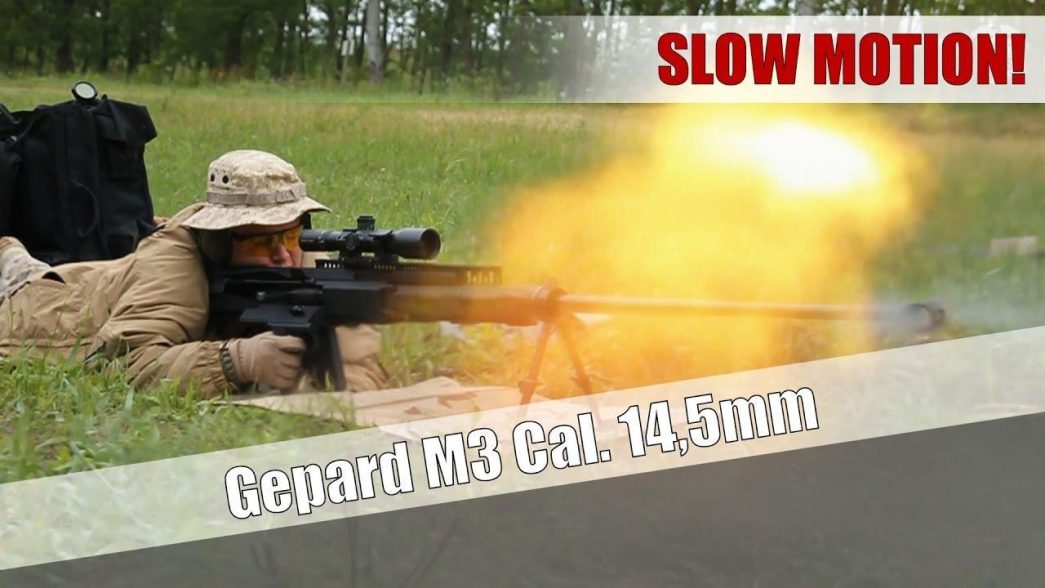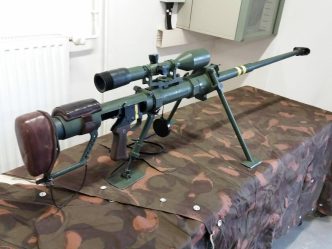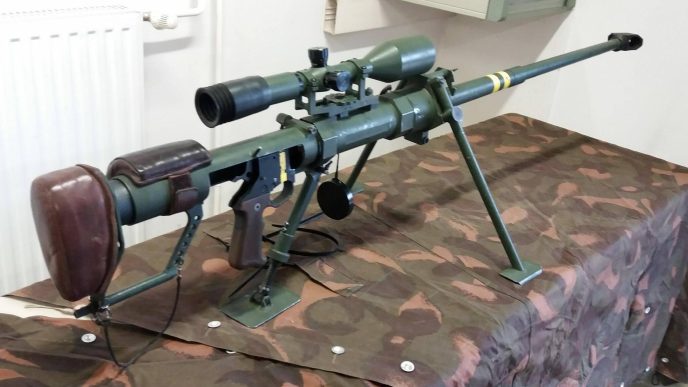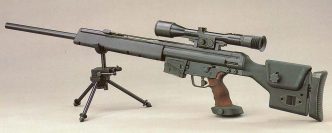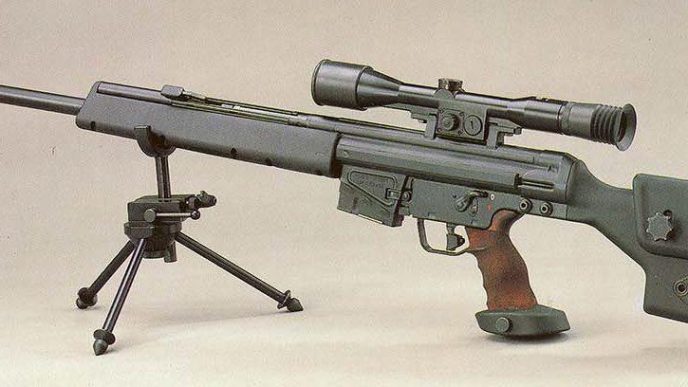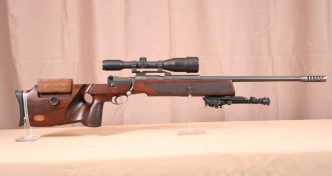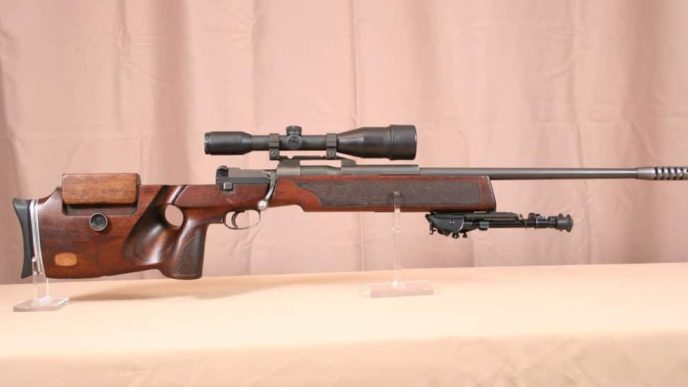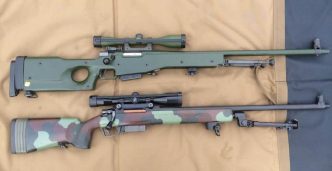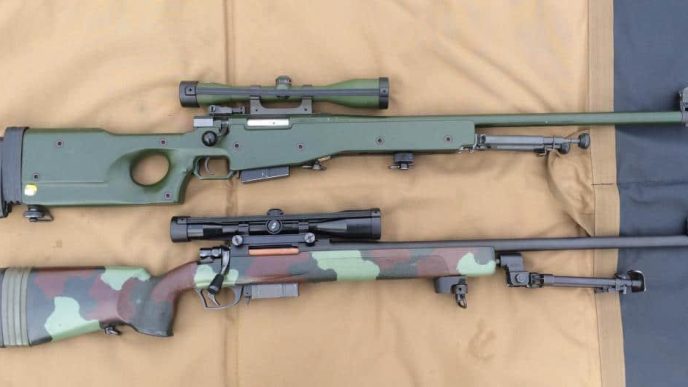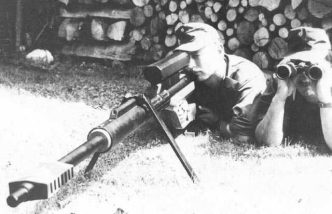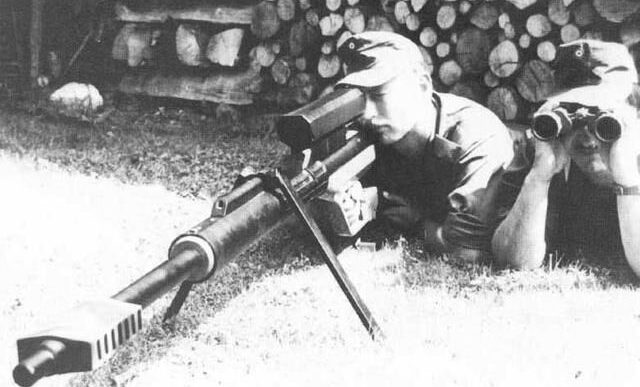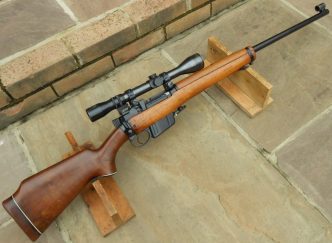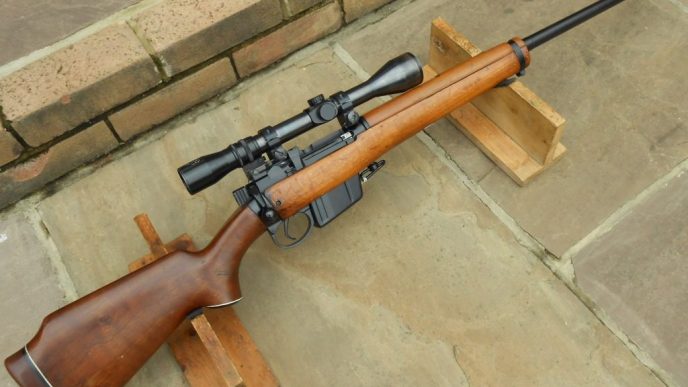Gepard M3 Destroyer is an anti-material rifle chambered in 14.5 mm caliber and it is the most famous rifle in the Gepard family. It was designed by engineer Major Ferenc Földi in Hungary.
Introduction
When the .50 heavy sniping rifles began to appear in the United States, one or two people wondered what sort of performance these might have if they were given a really potent cartridge. The same question arose in Hungary and when Istvan Fellegi completed the development of the Destroyer rifle in 12.7 mm caliber, he set about developing an improved model firing the powerful ex-Soviet 14.5 mm cartridge.
This cartridge was devised during World War II for an anti-tank rifle, and it was so effective that it remained in use against light German armor throughout the war, long after every other country had abandoned anti-tank rifles as bein useless. The 994 grain (64.4 grams) bullet has a core of tungsten carbide, a muzzle velocity of 1000 meters per second, and is capable of penetrating 16 mm of armor-steel at 1000 meters range.
Such a cartridge will, of course, produce a tremendous recoil, and the Gepard M3 Destroyer has been built to minimize this as much as possible. There is a large muzzle brake, and the entire receiver and barrel can recoil inside the supporting frame of the rifle, damped down by a hydraulic record buffer. The butt is heavily padded, and while the effect on the firer is a good deal more severe than any ordinary rifle, it is tolerable to the trained soldiers.
Design
The Gepard M3 rifle is semi-automatic, reloading automatically after every shot. The barrel and receiver recoil within the support frame for a short distance, after which the unit comes to a stop, and the bolt is then unlocked and free to move backward due to the momentum of recoil. It loads a heavy return spring, then goes forward again, collecting a cartridge from the magazine and loading it into the chamber. The bolt then locks and the entire unit then runs back to the firing position. The rifle is automatically cocked during the recoil stroke and the next shot can be fired as soon as the firer has taken aim once more.

For simplicity, the grip is acting as the locking mechanism. Loading is done while the grip rotated in 90 degrees. When the grip is rotated back to its normal position, a 2-prong head is locked. The grip also contains the firing mechanism. The grip is rotated manually to the right to eject the empty shell after firing. The rifle is equipped with a safety. The scope mount and bipod are Hungarian made.
The Gepard M3 is strictly an anti-materiel rifle because while the 14.5mm round is extremely powerful, its accuracy degrades rapidly at ranges beyond 1000 meters. Its high destructive power is very efficient in taking out hovering helicopters, APCs, or mobile radar stations, however.
The production history of the Gepárd was bumpy since it was designed and prototyped at the very end of communist rule and first production runs happened during the early-1990s, as Hungarian industrial capability shrunk in the process of transformation to market economy.
Users
The Gepard M3 was developed and produced for the needs of the Hungarian army, but it was also exported in small quantities to European countries from Turkey to Norway.
Technical specifications: Gepard M3 Destroyer
| Manufacturer: | Istvan Fellegi, Miskolo, Hungary |
| Designed: | 1987–1990 |
| Service: | 1991-present |
| Type: | recoil-operated semi-automatic |
| Caliber: | 0.57 mm (14.5×114 mm) |
| Barrel: | 53.5 in (1358 mm) |
| Weight (empty): | 37.5 lbs (17 kg) |
| Effective firing range: | 2,000 m |
| Maximum firing range: | 2,500 m |
| Rate of fire: | – |
| Magazine capacity: | 5-round detachable magazine |

